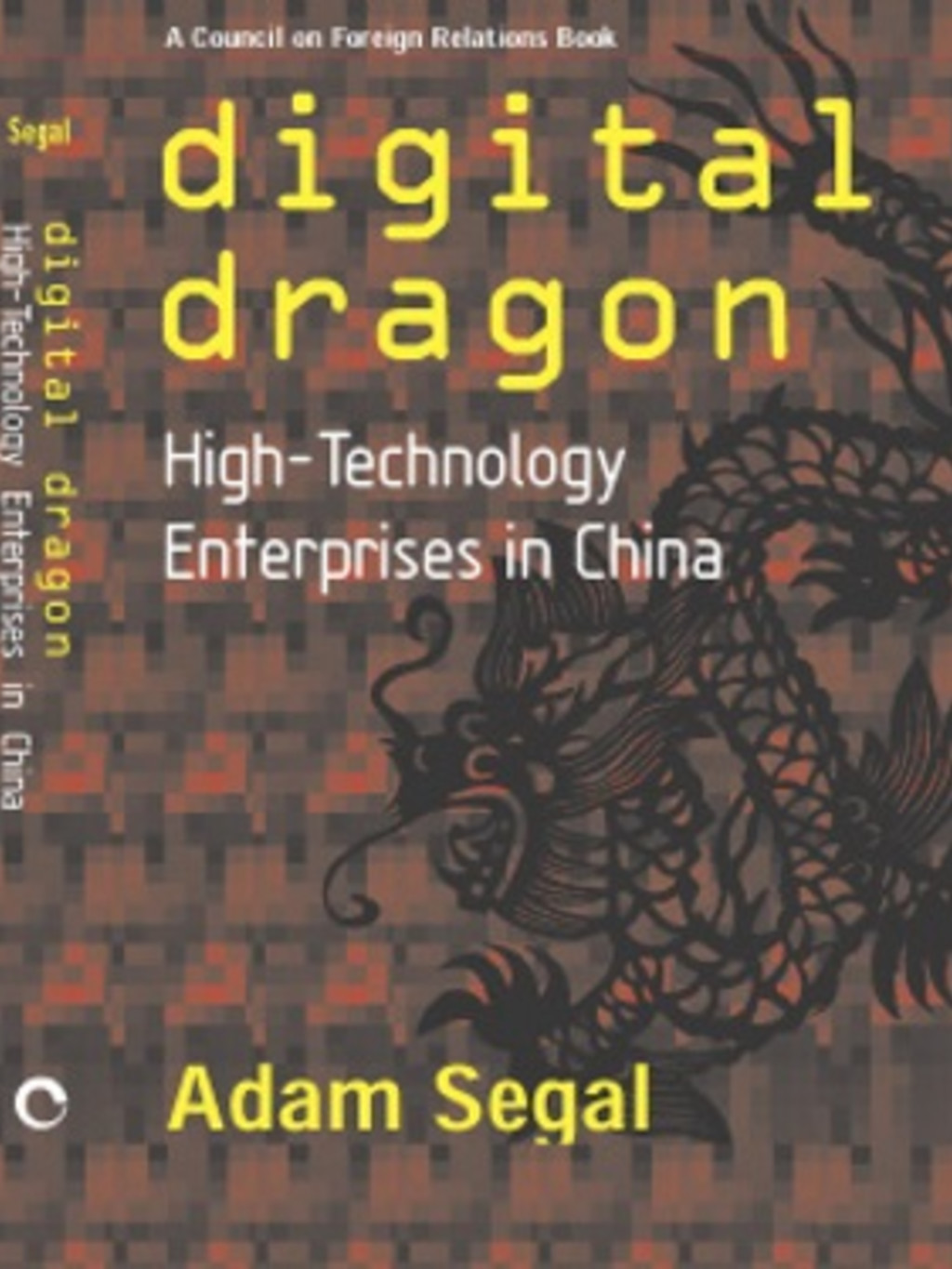Digital Dragon
High-Technology Enterprises in China

- Publisher
- Cornell University Press
- Release Date
- October 2002
- Pages
- 240
- ISBN
- 080143985X
Can China become a true global economic power? That depends on the evolution of the Chinese high-technology sector. The industry’s success or failure will determine whether China becomes a modern economy or simply a large one, argues CFR Senior Fellow Adam Segal in the first detailed look at a major institutional experiment with high-tech endeavors in China.
Without developing an indigenous high-technology sector, China will never be a global economic—or military—power, at the level of Japan or the United States. But according to Segal, this poses a monumental challenge to China’s leaders, who will need to balance economic growth against political ideology, and national security against participation in open global production networks. Drawing on a close examination of four cities‘ experiences with development of their information industries, Segal identifies the elements of a successful national high-tech strategy, including new ways of intervening in markets.
During the economic reforms of the last twenty years, China adopted policies designed to raise its technological capability and foster industrial growth. Ideologically, the government would not promote private-ownership firms and instead created a hybrid concept of “nongovernmental enterprises,” or minying qiye. Segal examines the minying experience, particularly in high technology, in four key places: Beijing, Shanghai, Xi’an, and Guangzhou. Minying enterprises, he finds, have been neither clear successes nor abject failures. Extending his analysis, he compares the experience of creating technology enterprises in China with those of Korea and Taiwan.
A Council on Foreign Relations Book
Review and Endorsements
Digital Dragon is an excellent book that makes a strong contribution to research on the Chinese economy. Adam Segal gets to the very heart of the problems that China faces in its quest to become a true global economic power.
Doug Guthrie, Associate Professor of Sociology, New York University
Digital Dragon shows how high-tech entrepreneurship has emerged with varying success from the different institutional contexts of four Chinese cities. The findings are surprising and important; who would have guessed that Beijing would be a more successful high-tech innovator than Shanghai? The book sets a new standard for the comparative study of political economy in China.
Susan Shirk, Professor of International Relations and Pacific Studies, University of California, San Diego
Nongovernmental firms are China’s pioneers in high technology. Adam Segal uses hundreds of interviews and documents from four places (Beijing, Shanghai, Guangzhou, and Xi’an) to show that local cultures and small firms are more crucial to growth in the information technology industry than are national policies and large firms. Segal shows that his four cities have made startlingly different efforts to jump into the future.
Lynn White, Professor of Politics and International Affairs, Woodrow Wilson School, Princeton University